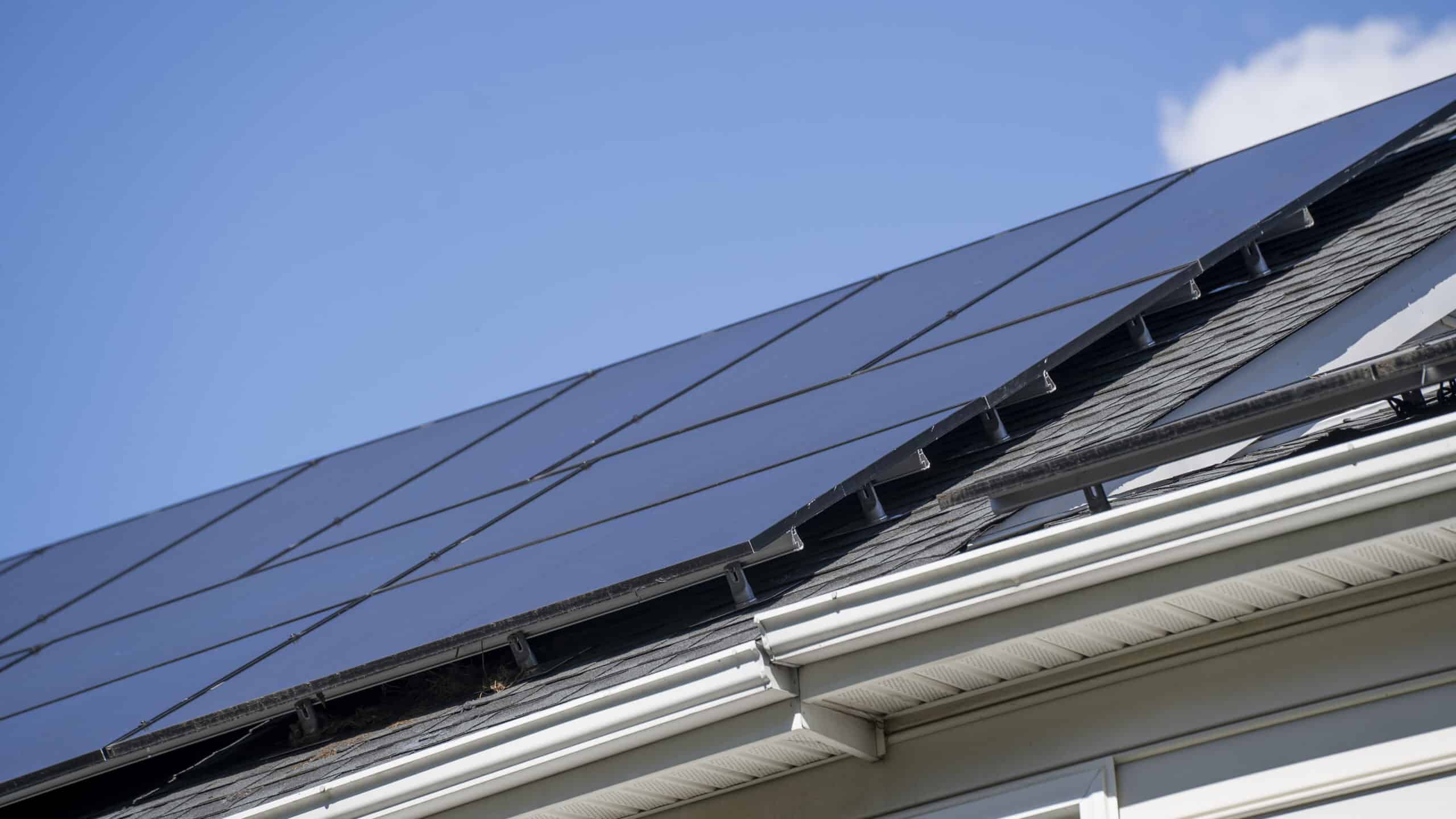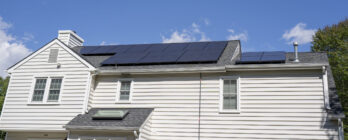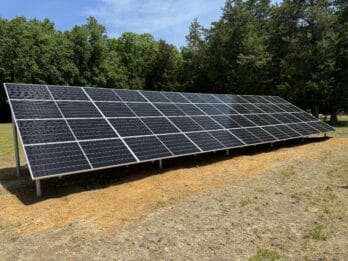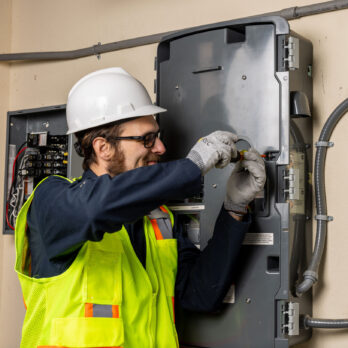Solar Financing in Virginia
Virginia generates roughly 7% of its state electricity from solar, ranking it the 11th highest solar energy generator in the country. Unlike many other states, Virginia did not allow solar leasing until recently. With the upcoming legalization of solar panel leasing in Virginia starting July 1, 2024, pursuant to House Bill 1062/Senate Bill 271, homeowners and businesses can now have more options than ever to go solar.
While this new law presents leasing as an attractive choice, it’s essential to weigh the pros and cons of both buying and leasing solar panels in Virginia to make an informed decision for your specific situation. In this article, we’ll explore the new legislation, explain what solar leasing entails, and compare it to the benefits and drawbacks of purchasing solar panels outright.
Understanding House Bill 1062/Senate Bill 271
The Virginia General Assembly passed House Bill 1062/Senate Bill 271, legalizing third-party solar leasing starting July 1, 2024. This new law makes solar energy more accessible by allowing homeowners and businesses to lease solar panels with no upfront cost, spreading payments over time. It also prohibits additional liability insurance for solar installations and standby charges for energy storage, further reducing financial barriers.
This legislation also supports Virginia’s goals of 30% renewable energy by 2030 and 100% by 2050, boosting residential and commercial solar adoption. Co-sponsored by Delegates Alfonso Lopez (D) and Dan Helmer (D), with prime sponsor Rodney Willett (D), the bill passed with a 57-42 vote, reflecting bipartisan support.
What is Solar Leasing?
Solar leasing is a solar financing option. Like leasing a car, solar leasing is where you pay a monthly fee for using solar panels owned by a third-party. Solar leasing involves a third-party company installing solar panels on your property, which you then lease for a fixed period, paying a fixed rate for the electricity, typically lasting 20 to 25 years. Instead of paying for the panels and installation upfront, you pay a monthly fee to the leasing company. The company usually retains ownership of the panels and is responsible for their maintenance and operation. However, solar companies that facilitate solar leasing often offer a buy clause that allows the lessee to buy out the solar system at a discounted price.
What Are the Typical Terms of a Solar Lease?
The terms of a solar lease include several key components designed to outline the responsibilities and benefits for both the lessee (homeowner) and the lessor (solar leasing company). Here is what you can expect:
- Lease Duration: Solar leases typically last between 20 to 25 years. This period is aligned with the expected lifespan and efficiency of the solar panels.
- Monthly Payments: The lessee agrees to make regular monthly payments to the lessor. These payments are often set at a fixed rate or may have a slight annual escalation clause to account for inflation.
- Initial Costs: Many solar leases require little to no upfront costs, making it easier for homeowners to start using solar energy without a significant initial investment.
- Maintenance and Repairs: The lessor is usually responsible for the maintenance and repairs of the solar panel system. This includes routine maintenance, repairs, and sometimes even monitoring the system’s performance.
- Performance Guarantee: Some leases include a performance guarantee, ensuring that the solar panels will generate a certain amount of electricity. If the panels underperform, the leasing company may compensate the lessee or address the issue to meet the guaranteed production levels.
- Insurance: The lessor often provides insurance for the solar panels, protecting against damage from natural disasters, theft, or other unforeseen events.
- Buyout Options: Many solar leases include an option for the lessee to purchase the solar panel system at certain points during the lease term, such as after 7, 10, or 15 years. The buyout price typically decreases over time as the system depreciates.
- End-of-Lease Options: At the end of the lease term, lessees may have several options, including renewing the lease, purchasing the solar panel system at a fair market value, or having the system removed by the leasing company.
- Transferability: Solar leases are often transferable to new homeowners if the property is sold. However, the new owner must agree to assume the lease terms.
- Energy Production and Billing: The lease agreement will specify how the energy produced by the solar panels will be measured and billed. This can include net metering arrangements with the local utility, where excess energy generated is fed back into the grid and credited to the homeowner’s account.
These terms help to define the relationship between the company and the individual, ensuring that both parties understand their obligations and benefits throughout the lease period.
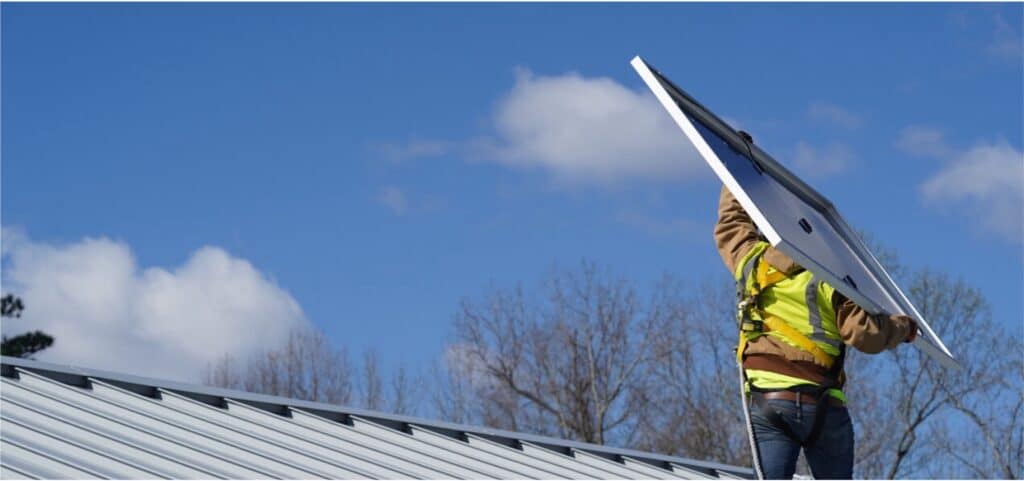
Buying Solar Pros and Cons (With Cash or Loan)
Despite Virginia’s new solar leasing law, should you lease or buy solar panels? If you ask our experts, we will tell you to buy for greater long-term savings, ownership benefits, and increased property value. However, don’t just take our word for it. We have explored the advantages and disadvantages of buying a solar panel vs solar leasing.
Purchasing Solar Advantages
- Long-term Savings: While the initial investment is higher, buying solar panels can lead to significant long-term savings. Once the panels are paid off, you benefit from free electricity for the remainder of their lifespan, usually 25-30 years.
- Incentives and Rebates: Federal incentives and rebates can reduce the upfront cost of setting up a solar system to up to 30%. Homeowners who purchase solar panels can take advantage of federal incentives, as well as solar renewable energy certificates.
- Increased Property Value: Studies have shown that homes with solar installations sell faster and at higher prices as owning solar panels can increase your property’s value. And, in most states, you do not even have to pay taxes on the additional value.
- Control and Ownership: When you own your solar panels, you have full control over them, including their maintenance and any modifications you might want to make. This is particularly important if you plan to increase your electricity usage in the future for charging cars or swapping out gas-powered systems in your home for all-electric.
- Solar Loan Options: There are many financial solar loan products that are designed to help homeowners get solar while saving money. The idea is to pay a lower monthly payment for your solar panels than you would for electricity without solar. When a solar array is sized correctly, it effectively zeroes out your electricity bill, so you are just left paying the loan payments for the solar panels. We recommend getting two proposals: cash vs loan, so you can see the difference.
Purchasing Solar Disadvantages
- High Upfront Cost: The initial cost of purchasing and installing solar panels can be substantial, which might be a barrier for some homeowners. But remember, loan options are available to offset what might be high upfront costs if paying in full.
- Maintenance Responsibility: As the owner, you are responsible for the upkeep and any repairs the system might need over its lifespan. With Dominion Energy Solutions, we provide 25-year competitive warranties. Moreover, thanks to our state weather, the cleaning of panels is rarely required in Virginia.
Leasing Solar Pros and Cons
Leasing Solar Advantages
- Low Upfront Costs: Leasing solar panels significantly reduces the initial expense, making solar energy more accessible to homeowners who might not have the capital to purchase a system outright.
- Maintenance Included: The leasing company typically handles all maintenance and repairs, which can provide peace of mind and eliminate unexpected expenses.
Leasing Solar Disadvantages
- Long-term Cost: Over the term of the lease, you may end up paying more than you would have if you had purchased the panels outright. Monthly lease payments can add up significantly over time.
- No Ownership Benefits: Since you do not own the panels, you cannot take advantage of tax credits, rebates, or increased property value.
- Contractual Obligations: Leasing agreements often come with long-term contracts that can be difficult to break. Selling your home can become more complicated, as the new owner must agree to take over the lease.
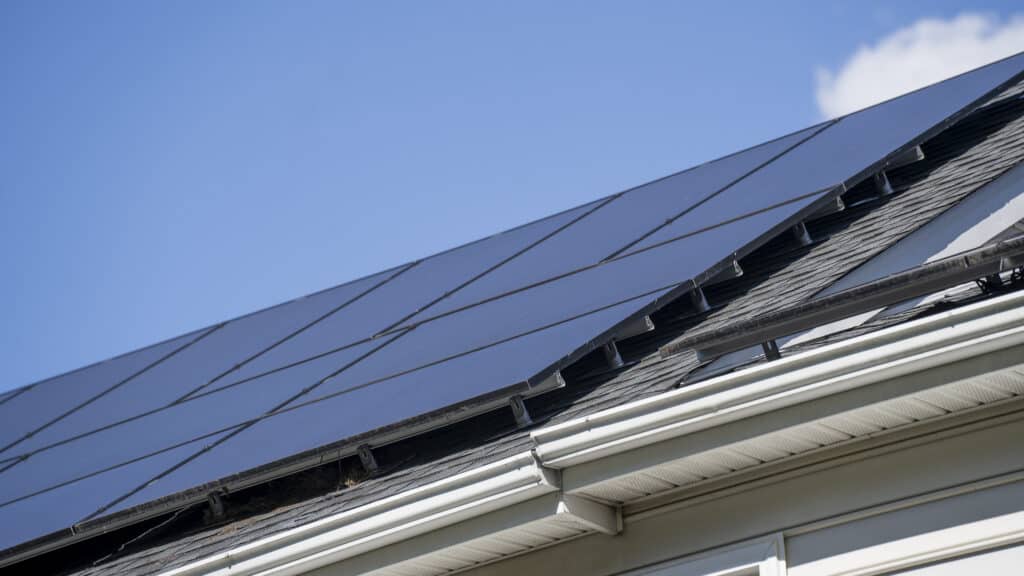
Side-by-Side Comparison: Solar Leasing vs Solar Purchase
| Buying Solar | Leasing Solar | |
| Upfront Cost | Options to Finance | Low |
| Ownership | yes | No |
| Maintenance | Homeowner’s Responsibility | Covered by Leasing Company |
| Long-Term Savings | High After the Payback Period | Potentially Lower Due to Ongoing Payments |
| Incentives and Rebates | Available to the Owner | Not Available |
| Property Value | Increase With Owned Panels | No Significant Increase |
| Contract Flexibility | No Contract | Long-Term Contracts with Potential Restrictions |
What are the risks of solar leasing?
While the legalization of solar leasing in Virginia might seem like a great idea, there are also some risk factors to be weary of. For example, many solar companies lack a solid track record, which raises doubts about their financial health and reliability in operations. Also, lease contracts are often structured to benefit the solar companies, with clauses allowing them to terminate the lease without cause, potentially leaving homeowners and businesses with unexpected income loss and restoration costs. If the company does cancel the contract, homeowners might have to deal with leftover equipment and land modifications and may face the burden of these restoration expenses if the company’s bond isn’t fully funded. Additionally, the use of third-party contractors can lead to construction liens on the property if the contractors are not paid. Lastly, while the initial compensation might appear attractive, the fixed payments could decrease in value over the lease term, reducing the overall financial advantage.
How Do I Decide?
We believe the answer is simple: purchase your panels with or without a loan. Our team can walk you through both options
The answer is simple, get a solar proposal for each; cash vs loan vs leasing. Our Energy Advisors can walk you through both options and help you install residential and commercial solar systems throughout Virginia including:

